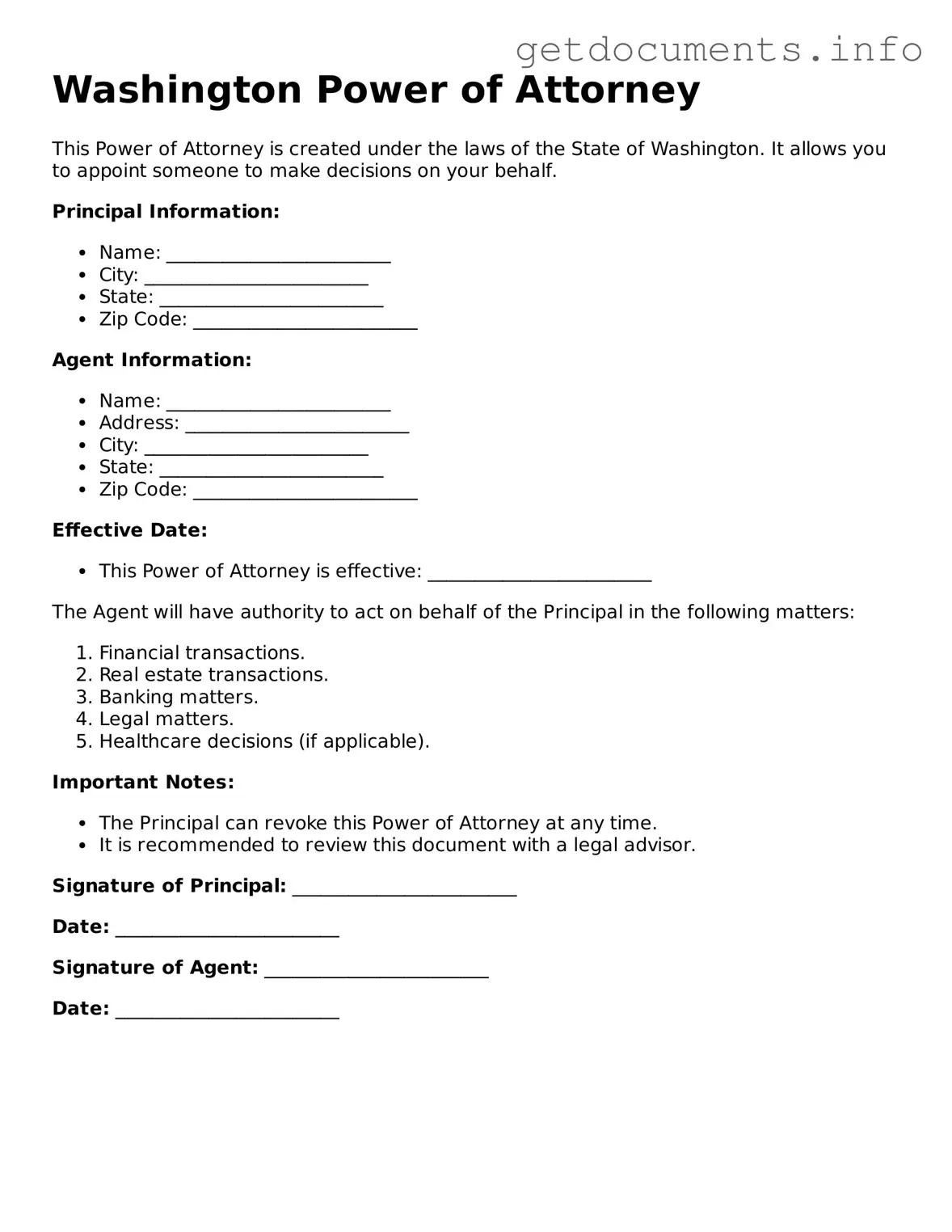Free Power of Attorney Template for Washington
A Washington Power of Attorney form is a legal document that allows one person to grant another the authority to make decisions on their behalf. This form can cover various aspects, including financial matters and healthcare choices, ensuring that your wishes are respected even if you become unable to communicate them. To take control of your future, consider filling out this essential form by clicking the button below.
Access Power of Attorney Editor

Free Power of Attorney Template for Washington
Access Power of Attorney Editor
Got places to be? Complete the form fast
Fill out Power of Attorney online and avoid printing or scanning.
Access Power of Attorney Editor
or
⇩ PDF File
